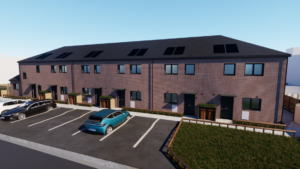Office-to-home conversions have been a ‘fiscal giveaway’ from the state to private interests, says report
 This research, conducted by a research team from University College London, and commissioned by Royal Institution of Chartered Surveyors, examined conversions in Camden, Croydon, Leeds, Leicester and Reading.
This research, conducted by a research team from University College London, and commissioned by Royal Institution of Chartered Surveyors, examined conversions in Camden, Croydon, Leeds, Leicester and Reading.
These councils had high rates of permitted developments but site visits to 568 buildings found an inconsistency in the quality of developments.
Since May 2013 it has been possible to convert a building from being an office into residential use without needing planning permission. This policy of deregulation was primarily intended to boost the supply of housing but also to help regeneration through reuse of vacant office space.
The report says that the original impact assessment from DCLG in 2013 was ‘flawed,’ and the policy of office-to-residential change of use being permitted development should be properly reviewed and ‘be returned to full planning control.’
The report makes a number of recommendations, including introducing safeguards to the prior approvals process, for example, adding minimum space standards.
It also recommends developers giving careful consideration to the wider implications of their schemes on communities and people’s everyday quality of life.
The report says ‘Overall, office-to-residential property development has been a fiscal giveaway from the state to private real estate interests, whilst leaving a legacy of a higher quantum of poor quality housing than is seen with schemes governed through full planning permission.’
Ben Clifford, senior lecturer at UCL’s Bartlett School of Planning said. ‘The idea of reusing vacant office space as housing is a good one. The way this is currently governed as permitted development in England is, however, highly problematic. Whilst we saw some high-quality conversions of office buildings to residential use during our detailed case study research, we also saw many other examples of very poor quality housing,’
‘These issues included problems over external design, location, residential amenity and the size of the housing units leading to strong concerns about the quality of life for residents.
‘Furthermore, there were examples of adverse impacts for local businesses from the conversion of occupied office space to housing, and none of these conversions were contributing properly towards local affordable housing need, the costs of public infrastructure associated with the additional housing units, or the costs of local authority monitoring of these schemes.
‘We believe there is a need for a better regulatory approach to the change of use of office space to housing,’
Read the report here















